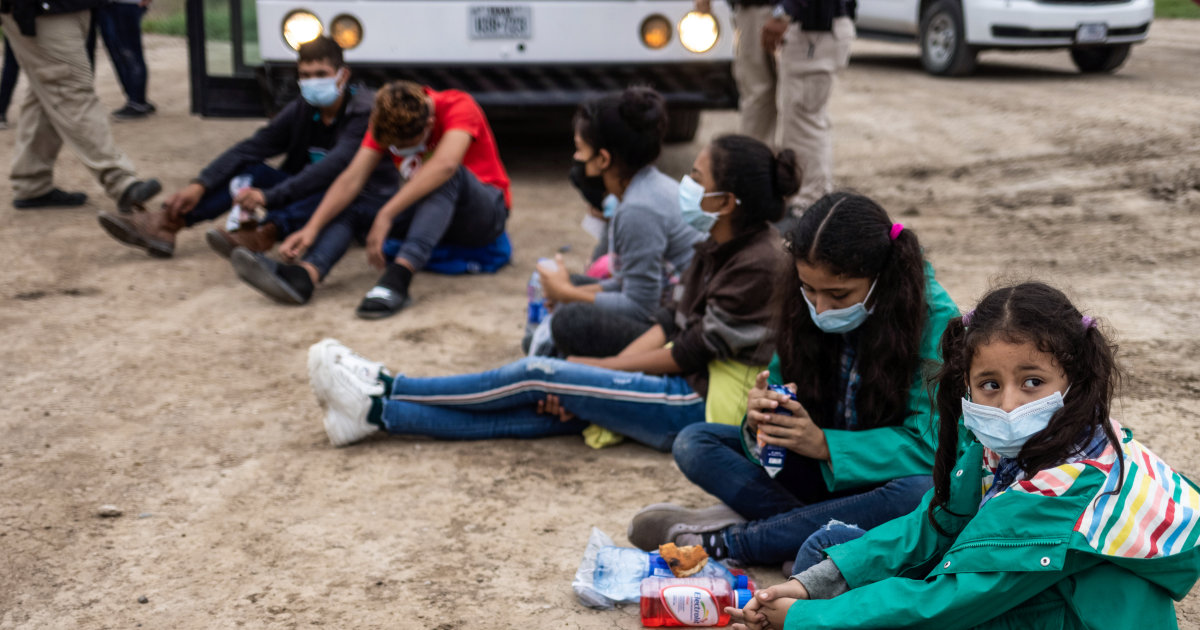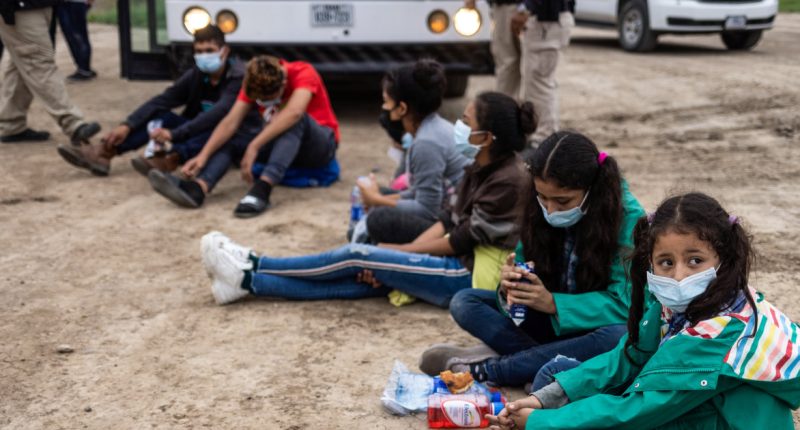
A rare bipartisan bill on immigration aims to make the immigration court system friendlier and more navigable for unaccompanied migrant children.
There are 62,000 pending cases in U.S. immigration courts involving children who crossed the border without a parent, and many now have to defend their right to stay in the U.S. without lawyers in courts meant for adults and in front of judges who may not understand their unique situation.
Data from the Justice Department suggests nearly half defend themselves against deportation without any legal representation. Sometimes children too young to communicate verbally are left sitting in front of judges who are not trained in handling such sensitive cases.
The Immigration Court Efficiency and Children’s Court Act of 2023 was introduced in the Senate on Wednesday by Michael Bennet, D-Colo., and Lisa Murkowski, R-Alaska, and in the House by a group of Republicans and Democrats. The bill aims to give special training to immigration judges and allow them to see a special children’s-only docket. It would also ensure that children are “treated appropriately for their developmental age” and are connected to legal service organizations.
Bennet, who was part of the bipartisan “gang of eight” senators that wrote an immigration reform bill in 2013, the last time Congress got close to passing comprehensive reform, said, “I think this is a small way that we can make it more humane and more efficient with respect to some of the more vulnerable people that are involved, and that’s kids.”
In June, NBC News witnessed firsthand what the bill hopes to re-create in immigration courtrooms across the country.
Judge Kathleen Reilly presided over a courtroom in Hyattsville, Maryland, where all migrants in the morning session had entered the country as unaccompanied children. Some were brought by their adult sponsors, some are now adults, some joined remotely by video, but almost all with lawyers representing them.
Reilly instructed one young woman that she would need to try to find a lawyer and come back for another hearing later. To others she explained their rights and what it would mean to choose voluntary departures or pursue their cases further, which could end in deportation orders or “final order of removal.”
In the back of the courtroom, a local representative from a legal advocacy organization, Kids in Need of Defense, or KIND, stood by to determine which cases might need additional legal assistance. In some courtrooms like this, young children might be offered teddy bears.
In response to the bill’s introduction, KIND President Wendy Young said: “Immigration courts were designed for adults and do not recognize the unique vulnerability of unaccompanied children. Other judicial settings involving children create separate structures that acknowledge children’s developmental levels and challenging circumstances. Immigration courts should follow best practices from these settings to create a more child-friendly environment which improves their access to due process.”
Bennet said the bill aims to make the process not just more humane for children, but more efficient, too. If children are connected with lawyers earlier in the process, fewer cases will be delayed. And if judges can focus on children-only dockets, the bill drafters argue, it would “combat the immigration court backlog,” which stands at over 2.7 million cases.
Bennet said he is hopeful the bill will pass because it has already achieved the status of being both bipartisan and bicameral, a rare feat for legislation in the current political climate, especially on the issue of immigration. But, he said, regardless of whether the bill passes, the U.S. needs more immigration judges to address the backlog of pending cases.
The bill does not guarantee the children will have lawyers — the right to legal counsel is afforded only to U.S. citizens — but Bennet said he thinks more will find lawyers as a result of the legislation.
“The idea here is that the judges, if they are people that have experience with children and if they are people that have a docket that is committed to children, that they would have more access to outside organizations that have lawyers and other advocates that could work with kids,” he said.
Source: | This article originally belongs to Nbcnews.com










